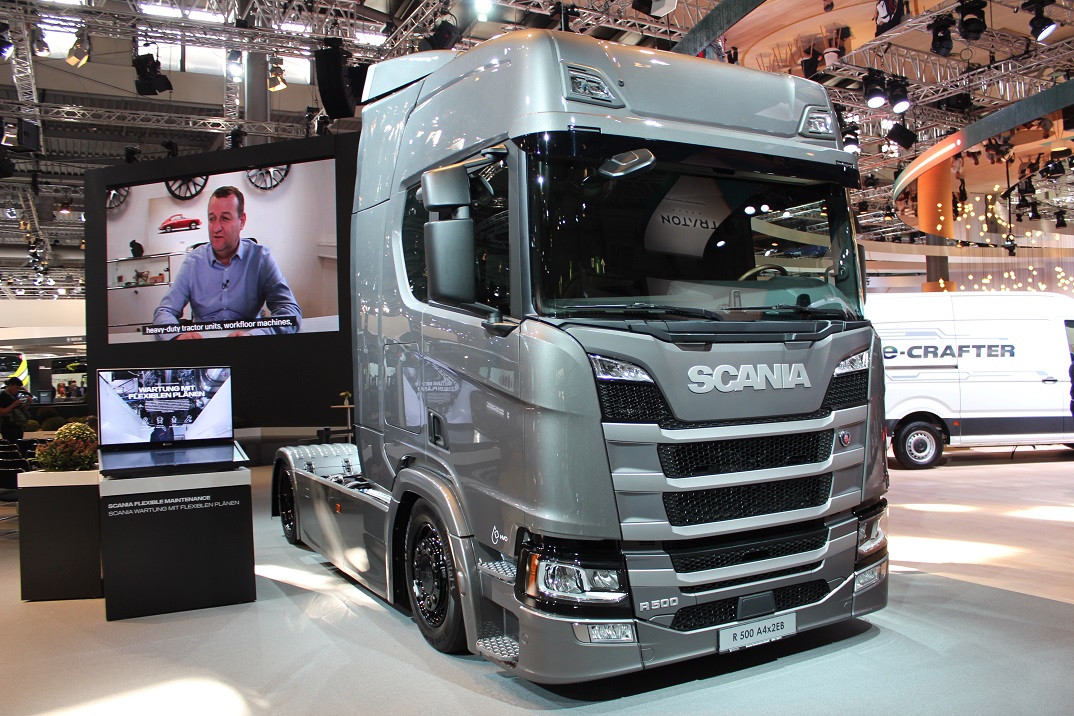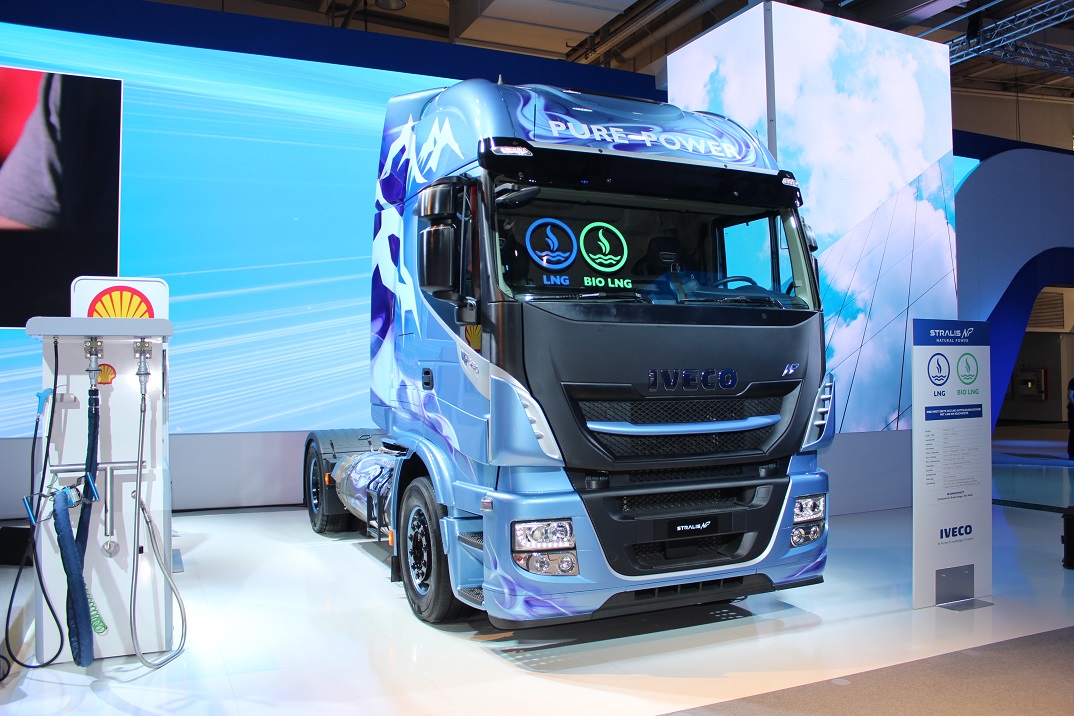Truck Operators – Help Save the Planet Today, not Tomorrow
There’s plenty of noise being made in the transport industry about electric and hybrid commercial vehicles being the key to saving the planet. The cost and range/weight disadvantages of BEVs (Battery Electric Vehicles) mean that they are simply not effective for long distance road transport at present.
But the alternative is definitely not doing nothing.
The Renewable Transport Fuel Obligation Order (RTFO, 2007) requires large UK retail fuel suppliers to ensure that a minimum of 9.75% (by energy) of the fuel they supply comes from renewable sources by 2020, and 12.4% by 2032.
The latest figures show that 4.9% of total road fuel supplied in the UK currently comes from these sources.
HGVs currently produce around 15% of total road transport greenhouse gas emissions with a similar contribution coming from vans. Vehicles with long-haul duty cycles account for the largest portion of greenhouse gas emissions from HGVs.
So, what can be done by transport operators today? Simply check which of your trucks can run on HVO without modification.
HVO (Hydrotreated Vegetable Oil)
Well, there is plenty to be getting on with. There are fuels available that could immediately replace diesel in existing vehicles that would help to meet these targets. Many trucks that are already on the road can run on HVO (Hydrotreated Vegetable Oil), for example.
HVO is a form of renewable diesel that has been produced from renewable and sustainably sourced vegetable fats and oils. Unlike regular biodiesel, hydrogen is used as a catalyst in the creation process instead of methanol.
This makes it a more clean-burning, environmentally friendly renewable diesel alternative, without the short shelf life of regular biodiesel.
There are already UK suppliers of this fuel who are quoting a 48-hour turnaround for supply of this product.
Martin Hay, Managing Director of Scania (Great Britain) Limited said:
Scania offers the widest range of alternatively-fuelled vehicles on the market today; our trucks and buses are capable of running on bioethanol, biodiesel, biomethane and HVO.
Many DAF trucks also need no modification to run on HVO.

Read the Guide
The Renewable Fuels Guide, produced by the LowCVP and Cenex, and supported by CNG Fuels and Scania shows how the adoption of renewable fuels from sustainable feedstocks offers one of the most rapid, and economically viable, routes to lowering emissions for such vehicles, both new and those already in service.
The guide provides fleet operators with an overview of the range of low carbon and sustainable fuels currently available in the UK, with a focus on high blend biofuels for use in commercial vehicles. It demonstrates the business and environmental case for their adoption, featuring a series of fleet operator case studies.
The guide highlights the opportunities for the introduction of renewable fuels including biodiesel, biomethane, biopropane and hydrotreated vegetable oil. It covers case studies from organisations including McDonalds; McGregor Logistics; London Borough of Hackney; Luckett’s Travel; John Lewis Partnership; London Borough of Camden; Cornwall Council and Kuehne+Nagel.
Download the Guide here: renewable-fuel-guide-march-2020
How About Biomethane-Powered Trucks?
Iveco now have a full range of gas-powered trucks available in the UK, including a 6×2 tractor unit running 460hp. The company is selling more gas-powered heavy trucks in the UK as diesel powered. Other manufacturers such as Scania and Volvo have gas trucks available.

The trucks run on either CNG or LNG (natural gas that is either compressed or, for greater density, liquified). Whilst the title of the fuel is natural gas, which we all see as a fossil fuel, this gas (methane) can be taken from many other sources.
The greenest source is to capture the methane produced naturally as a part of the process of rotting vegetation etc. called ‘Biomethane’. This is made using an anaerobic digester or animal waste and can be plugged into the national gas grid. If vented to the atmosphere without burning, methane is a harmful gas. Burning it, (using it to power a truck), therefore benefits the environment as opposed to waste simply being vented from landfill.
Buying gas is cheaper to buy – so much so that Iveco claim payback for the extra capital cost of the trucks to happen after two years at 180,000kms per year.
Gas trucks are also quieter to operate. Iveco uses a spark ignition engine in the Cursor 136 NP 13-litre engine. Using this engine means that the compression ratio is much lower than a diesel required – it runs more like a petrol – and that means at 71dB that it runs more quietly. There is a downside to this and that this the weight penalty of using a 13-litre versus an 11-litre diesel to achieve the same 460hp. There are some savings in losing the heavy SCR processing plant, but there are plenty of CNG/LNG tanks required to offset this.
The Germans think that this is a viable fuel for the medium term for long distance transport. A ‘Federal Ministry or Transport & Digital Infrastructure’ study identified LNG as the only mass-market alternative to diesel, until hydrogen fuel cell systems come on stream, which it expects around 2030. The gas trucks are toll free in Germany.
But what about refuelling infrastructure?
The Fuel Supplier’s Views
Philip Fjeld, CEO & Co Founder, CNG Fuels said: “Renewable biomethane allows HGV operators to make deep cuts in greenhouse gas emissions and save money, and demand is soaring. We are working hard to make it easier for fleet operators to switch from diesel and help decarbonise freight transport.
“We are building a strategic network of refuelling stations on major trunking routes and have just opened Europe’s largest CNG refuelling station in Warrington. From next year we will be supplying the UK’s first carbon neutral fuel for HGVs, helping our customers achieve Net Zero emissions.
